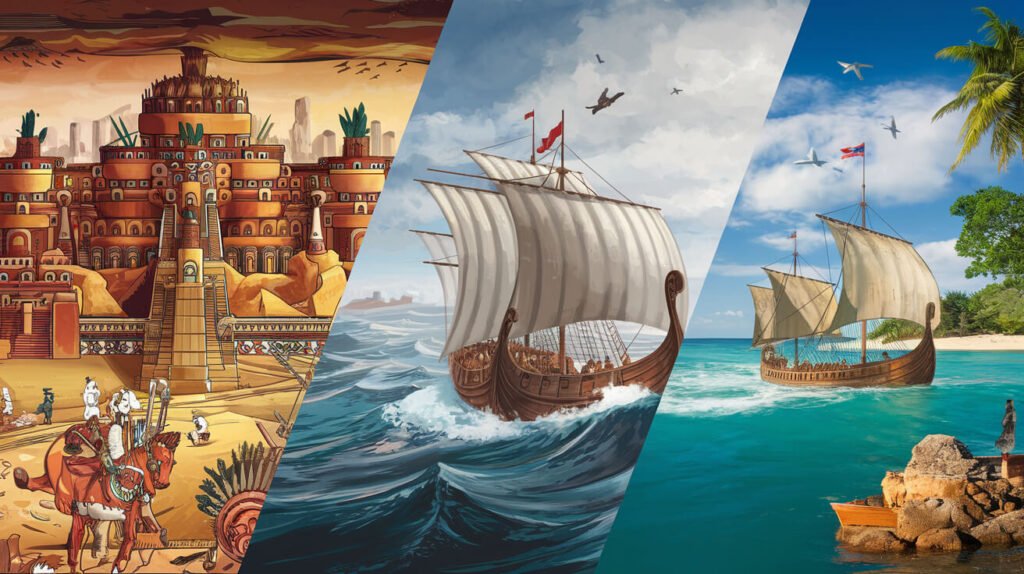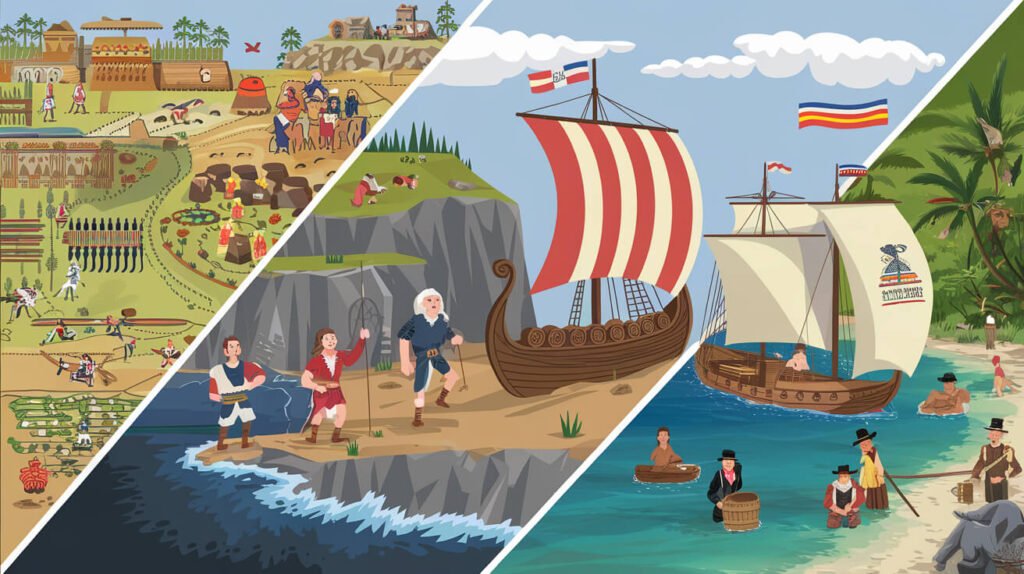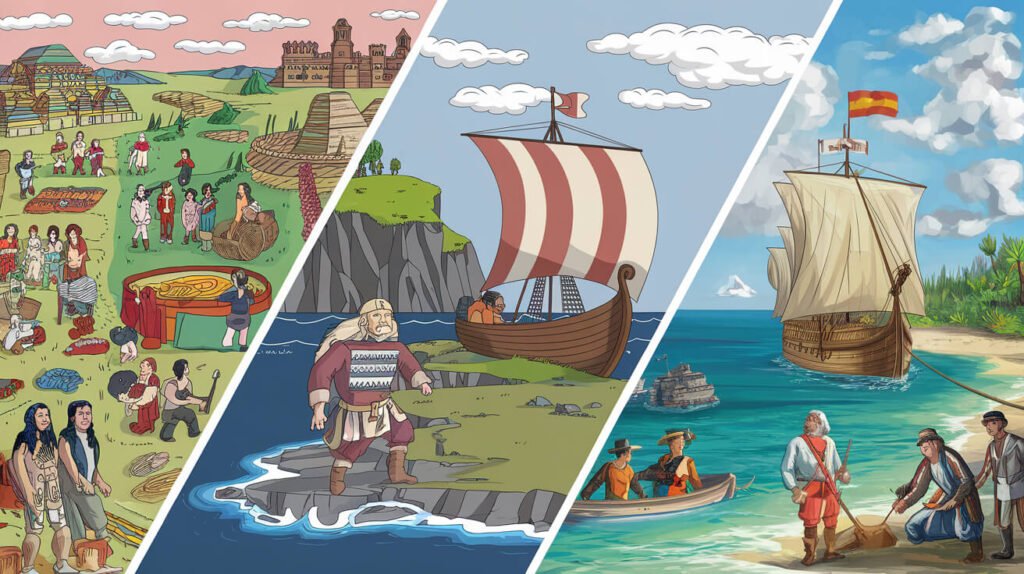
The discovery of America is one of the most debated topics in history, with various theories and figures emerging over time. While many associate the discovery of America with Christopher Columbus in 1492, the reality is much more complex. The story of how America was “found” involves a rich tapestry of explorers, indigenous peoples, and historical events long before Columbus set sail.
Indigenous Peoples: The First Discoverers
Before any European explorers set foot on the American continent, it was home to millions of indigenous peoples. Native American civilizations had been thriving for thousands of years, with rich cultures, traditions, and advanced societies. From the Aztecs and Mayans in Central America to the Inuit in the far north, and the Iroquois and Sioux across the plains, these peoples were the true first inhabitants of America.
These societies developed vast trade networks, built impressive cities like Tenochtitlan (the capital of the Aztec Empire), and made significant advancements in agriculture, astronomy, and art. So, in reality, the “discovery” of America by outsiders overlooks the fact that the continent was already “discovered” and settled by these native populations thousands of years earlier.
The Norse Exploration: Leif Erikson
Long before Columbus’ famous voyage, Norse explorer Leif Erikson is believed to have been the first European to reach North America. Around 1000 AD, Leif Erikson, the son of the famous Viking Erik the Red, sailed west from Greenland and landed in what is now Newfoundland, Canada. He called the land “Vinland” due to the abundance of wild grapes growing there.
Archaeological evidence from L’Anse aux Meadows, a Norse settlement in Newfoundland, confirms that the Vikings briefly colonized parts of North America. However, their attempts to establish permanent settlements were short-lived due to conflicts with the indigenous peoples and the challenges of sustaining themselves in the new land. Despite this, Erikson’s journey marks one of the earliest European encounters with the Americas.
Christopher Columbus: The Traditional Story

When most people think of the discovery of America, they think of Christopher Columbus. On October 12, 1492, Columbus, an Italian explorer sponsored by the Spanish monarchs Ferdinand and Isabella, landed in the Bahamas after setting sail from Spain. Columbus believed he had found a new route to Asia, but instead, he had stumbled upon a landmass that Europeans had no previous knowledge of.
Though he never reached mainland North America on his first voyage, Columbus’ discovery opened the floodgates for European exploration and colonization. The Spanish, followed by other European powers such as the English, French, and Dutch, quickly began claiming land across the Americas.
While Columbus is often credited with “discovering” America, it’s important to remember that his arrival marked the beginning of centuries of exploration, colonization, and conflict that would reshape the world.
Other Theories and Claims
There are also lesser-known theories about who may have discovered America before Columbus or Leif Erikson. Some historians suggest that ancient Phoenicians, Chinese explorers led by Zheng He, or even Irish monks under St. Brendan may have visited the Americas long before the 15th century. While these theories are intriguing, they remain speculative due to a lack of solid evidence.
Conclusion

So, who really discovered America? The answer depends on how we define “discovery.” If we recognize the indigenous peoples who lived on the continent for millennia, then America was never truly “lost” to be discovered. If we look at European exploration, both Leif Erikson and Christopher Columbus played pivotal roles in bringing the Americas into the consciousness of the Old World.
The story of America’s discovery is not a singular event but a complex narrative involving many cultures, peoples, and explorers.